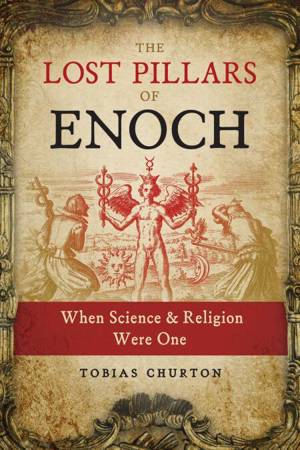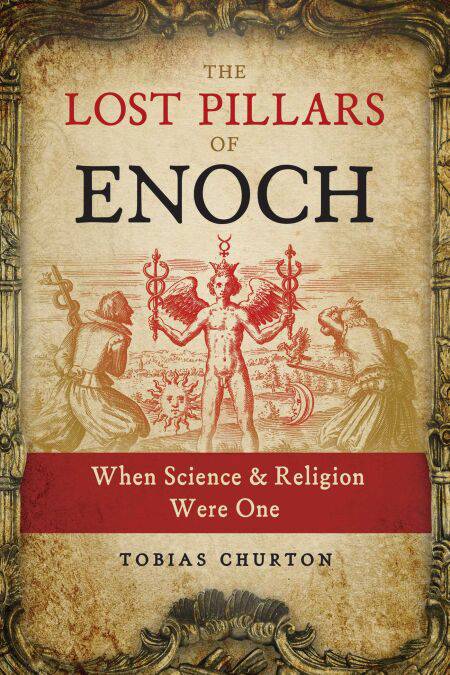
- Retrait gratuit dans votre magasin Club
- 7.000.000 titres dans notre catalogue
- Payer en toute sécurité
- Toujours un magasin près de chez vous
- Retrait gratuit dans votre magasin Club
- 7.000.0000 titres dans notre catalogue
- Payer en toute sécurité
- Toujours un magasin près de chez vous
19,00 €
+ 19 points
Format
Description
Explores the unified science-religion of early humanity and the impact of Hermetic philosophy on religion and spirituality
• Investigates the Jewish and Egyptian origins of Josephus’s famous story that Seth’s descendants inscribed knowledge on two pillars to save it from global catastrophe
• Reveals how this original knowledge has influenced civilization through Hermetic, Gnostic, Kabbalistic, Masonic, Hindu, and Islamic mystical knowledge
• Examines how “Enoch’s Pillars” relate to the origins of Hermeticism, Freemasonry, Newtonian science, William Blake, and Theosophy
Esoteric tradition has long maintained that at the dawn of human civilization there existed a unified science-religion, a spiritual grasp of the universe and our place in it. The biblical Enoch--also known as Hermes Trismegistus, Thoth, or Idris--was seen as the guardian of this sacred knowledge, which was inscribed on pillars known as Enoch’s or Seth’s pillars.
Examining the idea of the lost pillars of pure knowledge, the sacred science behind Hermetic philosophy, Tobias Churton investigates the controversial Jewish and Egyptian origins of Josephus’s famous story that Seth’s descendants inscribed knowledge on two pillars to save it from global catastrophe. He traces the fragments of this sacred knowledge as it descended through the ages into initiated circles, influencing civilization through Hermetic, Gnostic, Kabbalistic, Masonic, Hindu, and Islamic mystical knowledge. He follows the path of the pillars’ fragments through Egyptian alchemy and the Gnostic Sethites, the Kabbalah, and medieval mystic Ramon Llull. He explores the arrival of the Hermetic manuscripts in Renaissance Florence, the philosophy of Copernicus, Pico della Mirandola, Giordano Bruno, and the origins of Freemasonry, including the “revival” of Enoch in Masonry’s Scottish Rite. He reveals the centrality of primal knowledge to Isaac Newton, William Stukeley, John Dee, and William Blake, resurfacing as the tradition of Martinism, Theosophy, and Thelema. Churton also unravels what Josephus meant when he asserted one Sethite pillar still stood in the “Seiriadic” land: land of Sirius worshippers.
Showing how the lost pillars stand as a twenty-first century symbol for reattaining our heritage, Churton ultimately reveals how the esoteric strands of all religions unite in a gnosis that could offer a basis for reuniting religion and science.
• Investigates the Jewish and Egyptian origins of Josephus’s famous story that Seth’s descendants inscribed knowledge on two pillars to save it from global catastrophe
• Reveals how this original knowledge has influenced civilization through Hermetic, Gnostic, Kabbalistic, Masonic, Hindu, and Islamic mystical knowledge
• Examines how “Enoch’s Pillars” relate to the origins of Hermeticism, Freemasonry, Newtonian science, William Blake, and Theosophy
Esoteric tradition has long maintained that at the dawn of human civilization there existed a unified science-religion, a spiritual grasp of the universe and our place in it. The biblical Enoch--also known as Hermes Trismegistus, Thoth, or Idris--was seen as the guardian of this sacred knowledge, which was inscribed on pillars known as Enoch’s or Seth’s pillars.
Examining the idea of the lost pillars of pure knowledge, the sacred science behind Hermetic philosophy, Tobias Churton investigates the controversial Jewish and Egyptian origins of Josephus’s famous story that Seth’s descendants inscribed knowledge on two pillars to save it from global catastrophe. He traces the fragments of this sacred knowledge as it descended through the ages into initiated circles, influencing civilization through Hermetic, Gnostic, Kabbalistic, Masonic, Hindu, and Islamic mystical knowledge. He follows the path of the pillars’ fragments through Egyptian alchemy and the Gnostic Sethites, the Kabbalah, and medieval mystic Ramon Llull. He explores the arrival of the Hermetic manuscripts in Renaissance Florence, the philosophy of Copernicus, Pico della Mirandola, Giordano Bruno, and the origins of Freemasonry, including the “revival” of Enoch in Masonry’s Scottish Rite. He reveals the centrality of primal knowledge to Isaac Newton, William Stukeley, John Dee, and William Blake, resurfacing as the tradition of Martinism, Theosophy, and Thelema. Churton also unravels what Josephus meant when he asserted one Sethite pillar still stood in the “Seiriadic” land: land of Sirius worshippers.
Showing how the lost pillars stand as a twenty-first century symbol for reattaining our heritage, Churton ultimately reveals how the esoteric strands of all religions unite in a gnosis that could offer a basis for reuniting religion and science.
Spécifications
Parties prenantes
- Auteur(s) :
- Editeur:
Contenu
- Nombre de pages :
- 336
- Langue:
- Anglais
Caractéristiques
- EAN:
- 9781644110447
- Date de parution :
- 28-12-20
- Format:
- Ebook
- Protection digitale:
- Adobe DRM
- Format numérique:
- ePub

Les avis
Nous publions uniquement les avis qui respectent les conditions requises. Consultez nos conditions pour les avis.






